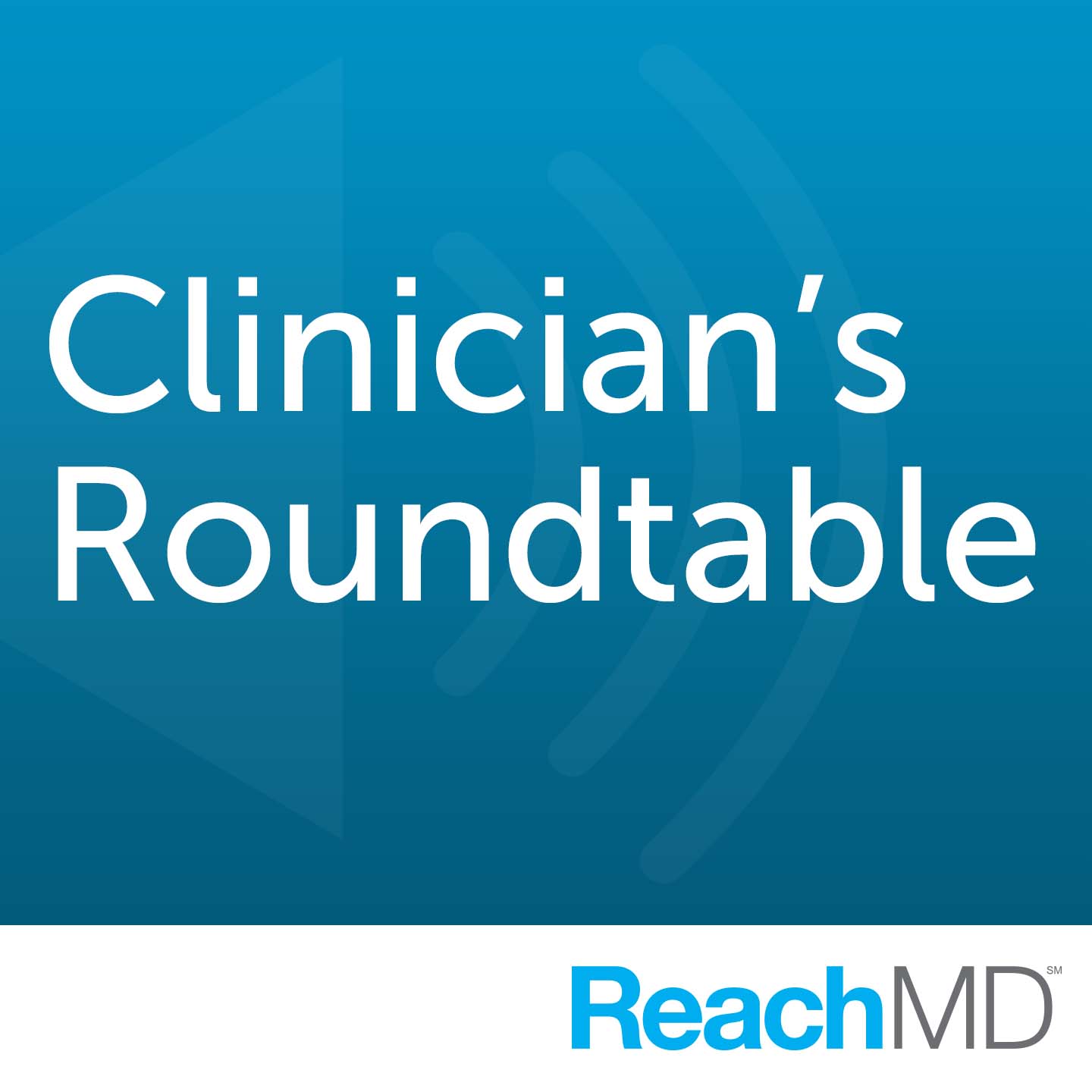

Clinician's Roundtable
ReachMD
Tune in to interviews with the top thought leaders in medicine exploring the clinical and professional issues that are foremost in the minds of the medical community. Join us at the Clinician's Roundtable for discussions on a vast range of topics that every medical professional should know about.
Episodes
Mentioned books

Aug 26, 2008 • 0sec
Moving Toward Synthetic Alternatives to Heparin
Host: Bruce Japsen
Guest: Ted Love, MD
With ongoing questions about the manufacturing of heparin in China and concerns about a potential shortage of the anticoagulant, some are wondering whether there is a need for new heparin alternatives. Dr. Ted Love, chief executive officer of the San Francisco biotech company Nuvelo, tells host Bruce Japsen about the biotech industry's pursuit of synthetic variations of the popular blood thinner.

Aug 26, 2008 • 0sec
Drug Innovations Coming From Outside Big Pharma
Host: Bruce Japsen
Guest: Tim Walbert
The climate for innovation in the pharmaceutical and biotech industries is fraught with risk, but also holds great potential for reward. Tim Walbert, the chief executive of Horizon Therapeutics, tells host Bruce Japsen about the prospects for growth in life sciences and the biopharmaceutical industry outside of Big Pharma and what that means for physicians.

Aug 26, 2008 • 0sec
Drugmakers' Foray into the Combination Pill Market
Host: Bruce Japsen
Guest: Tim Walbert
Why take two pills when you can just take one? Welcome to the latest phenomenon in healthcare: combination pills. Tim Walbert, president and chief executive officer of Horizon Therapeutics, tells host Bruce Japsen about the drug industry's push toward combining two or more treatments into one pill, and the potential benefits for us and for our patients.

Aug 25, 2008 • 0sec
Clinical Applications of Raltegravir for HIV Therapy
Host: Mark Nolan Hill, MD
Guest: Roy Steigbigel, MD
We are getting our first in-depth look at some of the research behind raltegravir, a powerful therapy for multi-drug resistant HIV infection already approved by the FDA. How is this raltegravir data impacting current clinical strategies for attacking the virus in multi-drug resistant patients? Host Dr. Mark Nolan Hill probes this question and much more with Dr. Roy Steigbigel, professor of medicine and pathology, molecular genetics and microbiology, and pharmacological sciences, and founding director of the Comprehensive AIDS Center at the State University of New York at Stony Brook.

Aug 25, 2008 • 0sec
Raltegravir Therapy for Multi-Drug Resistant HIV
Host: Mark Nolan Hill, MD
Guest: Roy Steigbigel, MD
In the quest to find therapies for multi-drug resistant HIV, researchers have zeroed in on raltegravir. The latest data indicates this potent agent provides the highest reported virologic suppression rate among multi-drug resistant patients. Is raltegravir proving more effective than antiretrovirals? Does it carry any prominent side effects? Dr. Roy Steigbigel, professor of medicine and pathology, molecular genetics and microbiology, and pharmacological sciences, and founding director of the Comprehensive AIDS Center at the State University of New York at Stony Brook, details his New England Journal of Medicine research on raltegravir therapy for multi-drug resistant HIV with host Dr. Mark Nolan Hill.

Aug 25, 2008 • 0sec
Surgeons Discover New Instrument, the Physician Assistant
Host: Lisa Dandrea Lenell, PA-C, MPAS, MBA
Guest: Robert M. Blumm, PA-C
Surgical physician assistants are becoming an important part of the workflow of hospitals. Guest Robert Blumm, a practicing physician assistant since 1970 and president of the Association of Plastic Surgery Physician Assistants, outlines with host Lisa D'Andrea the capabilities and contributions of the surgical physician assistant in the hospital setting.

Aug 25, 2008 • 0sec
Making Hospital Rounds: The Surgical Physician Assistant
Host: Lisa Dandrea Lenell, PA-C, MPAS, MBA
Guest: Robert M. Blumm, PA-C
Guest Bob Blumm, MA, PA-C, DFAAPA, discusses how surgical physician assistants are contributing to the quality of care in hospitals throughout the country. In addition, Mr. Blumm outlines the training and credentials of surgical physician assistants.

Aug 25, 2008 • 0sec
The Most Common Billing Mistakes for PA Services
Host: Lisa Dandrea Lenell, PA-C, MPAS, MBA
Guest: Emily Hill, PA
The economic benefits of utilizing a physician assistant depend upon properly coding and billing the services performed by these providers. Emily Hill explains to host Lisa D'Andrea the most common coding mistakes made by practitioners when billing for services rendered by mid-level providers such as physician assistants. Ms. Hill provides suggestions to improve billing accuracy and to increase reimbursement for the practice.

Aug 25, 2008 • 0sec
Coding Tips to Maximize Physician Assistant Reimbursement
Host: Lisa Dandrea Lenell, PA-C, MPAS, MBA
Guest: Emily Hill, PA
Guest Emily Hill explains how to properly code the services performed by your physician assistant under the physician to obtain full reimbursement. After listening to this show, you will understand the rules and be able to maximize reimbursement for the services rendered by your physician assistant.

Aug 20, 2008 • 0sec
Pharmacy Robot Works 24/7 to Eliminate Errors
Host: Larry Kaskel, MD
Guest: Richard Ricker, RpH, MBA
A new pharmacy robot at Loyola University Medical Center in Maywood, Illinois, is designed to eliminate life-threatening human medication errors. Richard Ricker, administrative director of the pharmacy department at Loyola University Medical Center explains how the prescription filling-robot dispenses as many as 600 doses of medications each hour with an innovative system to safeguard against human errors. The robot, trademark-named PillPick, is manufactured by Swisslog Healthcare Solutions and is the first such system to be used in a Midwestern hospital.


